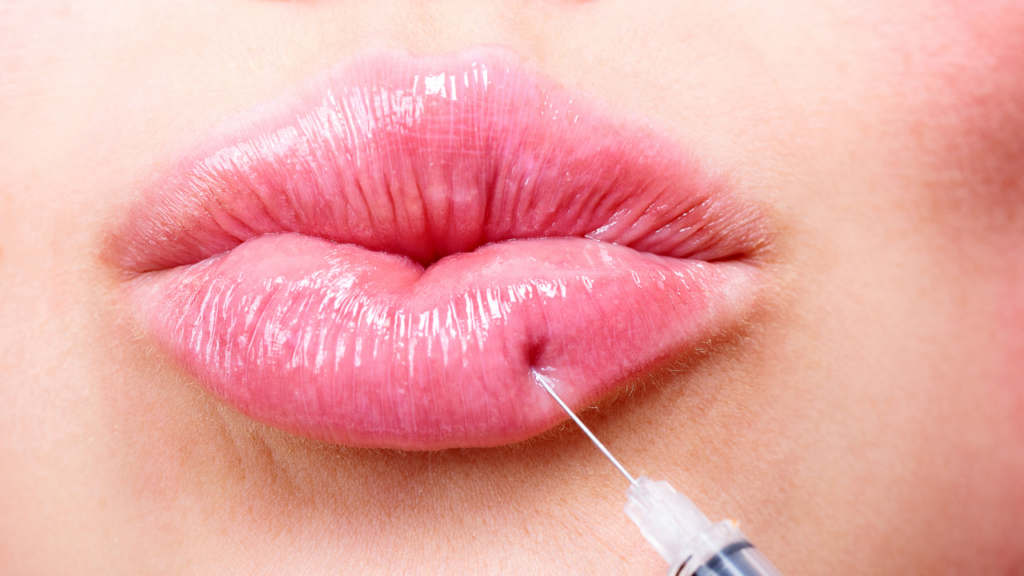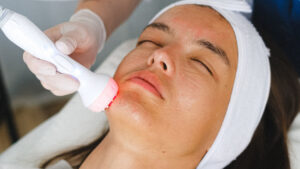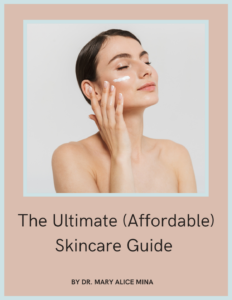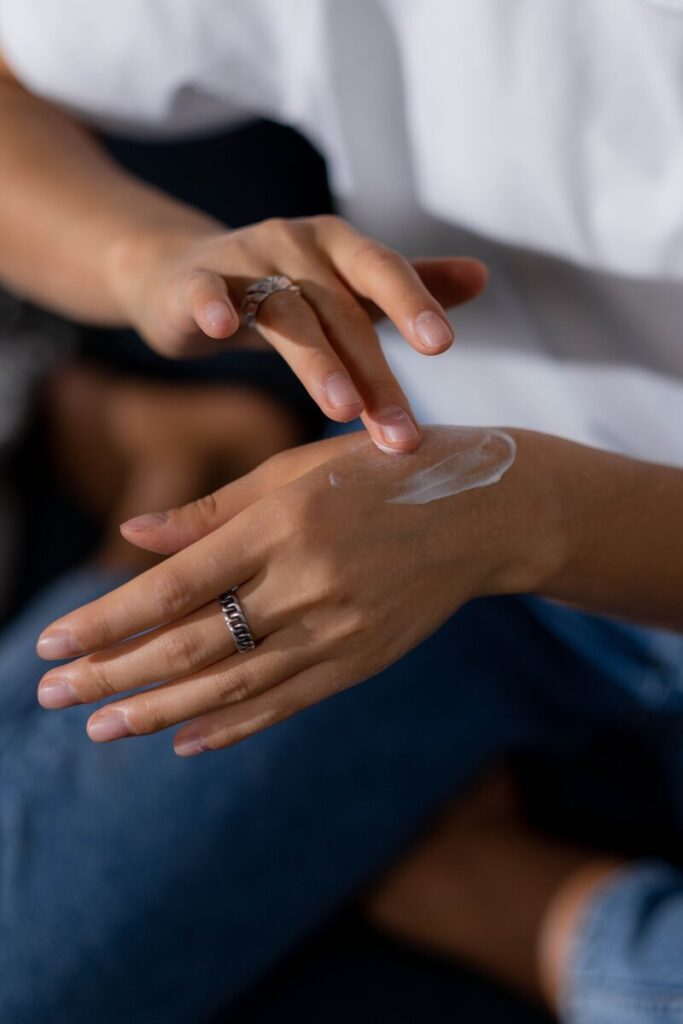Medical spas, or med spas, are seemingly everywhere. These aesthetic clinics promise a one-stop-shop for beauty treatments, offering everything from Botox and dermal fillers to laser treatments, microneedling, and IV therapy. Many med spas market themselves as luxurious, high-end retreats where patients can enhance their appearance in a relaxing, spa-like environment.
But are med spas actually safe? Who is performing these cosmetic procedures, and are they qualified? As a board-certified dermatologist, I want to shed light on what you need to know before booking your next aesthetic treatment at a med spa.
The Med Spa Boom: Why Are They Everywhere?
The explosion of medical spas in recent years is no coincidence. These businesses exist in a regulatory gray area, offering medical treatments but often operating more like retail businesses than healthcare facilities. Unlike a dermatology or plastic surgery clinic, where patient safety and medical ethics are foundational, many med spas operate more like businesses with non-healthcare professionals leading the way.
Here’s what you need to know:
- There are no federal regulations governing med spas – each state sets its own rules, many of which are vague or poorly enforced.
- Only 38% of med spas have physician oversight, and in some cases, the “supervising physician” isn’t even on-site.
- Only 16% of supervising physicians are plastic surgeons, and just 4% are dermatologists—the two specialties with actual training in aesthetic medicine.
The Risks: What Can Go Wrong at a Med Spa?
When performed by skilled, licensed medical professionals, aesthetic procedures can be life-changing. But in the wrong hands? The risks are serious.
1. Filler Complications: Vascular Occlusion & Blindness
Dermal fillers like hyaluronic acid (Juvederm, Restylane) are great for adding volume and smoothing wrinkles. However, when injected incorrectly, filler can block blood vessels, leading to vascular occlusion (tissue death) or, in rare cases, blindness.
If an injector does not recognize the early signs of a blocked artery and does not have access to hyaluronidase (a dissolving enzyme), the result can be permanent skin damage or scarring. Understanding anatomy is key is helping prevent these complications.
2. Laser Burns & Pigmentation Issues
Lasers are powerful medical devices, but they require specialized knowledge of skin types and wavelength settings to avoid complications.
- The wrong laser settings can cause severe burns, scarring, or hyperpigmentation, especially in darker skin tones.
- Non-dermatologists may mistake skin cancer lesions for sunspots and laser them off instead of performing a biopsy, delaying a melanoma diagnosis. Unfortunately I have seen this far too often!
3. Counterfeit or Diluted Botox
If Botox or Dysport treatments are shockingly cheap, it may be because the product is fake, expired, or diluted. Counterfeit injectables can cause:
- Ineffective results or asymmetrical outcomes
- Severe infections or botulism-like symptoms
- Potential hospitalization from unregulated Botox substitutes
4. Infections from Poor Hygiene & Reused Equipment
Since med spas may be run by non-healthcare professionals, hygiene and sanitation may not be up to medical standards like you would see in a physician office. Unfortunately there have been reports of:
- Reused syringes leading to HIV and hepatitis transmission
- Non-sterile microneedling tools causing bacterial infections
- Improperly handled PRP (platelet-rich plasma) treatments leading to infections.
- If a facility doesn’t look clean or sterile techniques aren’t followed, walk away.
How to Stay Safe: What to Look for in a Med Spa
Med spas are here to stay, and not all of them are bad. In fact, I routinely refer select patients to trusted aestheticians for treatments! However, it’s essential to do your homework before trusting a provider with your face and body.
1. Ask Who is Performing Your Treatment
- Is the injector a board-certified dermatologist, plastic surgeon, or trained medical professional?
- If an esthetician or nurse is performing the procedure, who is supervising them?
- Is there a physician on-site, or are they just “supervising” remotely from another state?
2. Be Wary of Unrealistic Promises
- No procedure is risk-free—if someone guarantees perfect results, that’s a red flag.
- If a med spa pressures you into purchasing multiple treatments or expensive skincare products, they may be prioritizing sales over your best interests.
3. Check the Med Spa’s Licensing & Credentials
- Look for a board-certified dermatologist or plastic surgeon overseeing treatments.
- Verify that the med spa is licensed in your state and follows medical safety protocols.
- Research patient reviews and before-and-after photos to gauge the quality of results.
4. Ask About the Products & Equipment Used
- Always ask for FDA-approved injectables like Botox (Allergan) or Dysport (Ipsen)—not mystery brands.
- Ensure that laser treatments are appropriate for your skin type—especially if you have darker skin.
- Confirm that all needles and tools are single-use and that equipment is properly sterilized.
5. Avoid Price Shopping for Aesthetic Treatments
It’s tempting to search for deals, but when it comes to your face and skin, cheaper is not better. If a med spa offers Botox or fillers at deeply discounted rates, it’s likely:
- Diluted, expired, or counterfeit products
- Untrained injectors performing procedures to cut costs
- Compromised safety measures to increase profit margins
Invest in quality and expertise, not bargain prices.
When to See a Board-Certified Dermatologist Instead
While med spas offer many popular treatments, certain procedures are best left to dermatologists or plastic surgeons.
Consider seeing a dermatologist if:
- You have chronic skin concerns like acne, rosacea, or eczema.
- You’re considering Botox or fillers and want the most natural-looking results.
- You’re interested in laser treatments and want a customized approach based on your skin type.
- You need a skin cancer screening—don’t let a med spa laser off a suspicious mole.
Are Med Spas Safe?
Med spas can be great when run by well-trained medical professionals. However, they can also be risky when poorly regulated or operated by individuals with no formal training in aesthetics.
Before booking a procedure, always:
- Research the med spa’s reputation
- Verify the credentials of your provider
- Ask the right questions about safety and products
At the end of the day, your health and safety come first. Don’t let convenience or a too-good-to-be-true deal compromise your results or well-being.
If you want safe, effective, and natural-looking aesthetic treatments, consult with a board-certified dermatologist who understands both the art and science of aesthetics.
Your skin is worth it.
Follow Dr. Sethi here: https://www.instagram.com/doctor_sethi/











